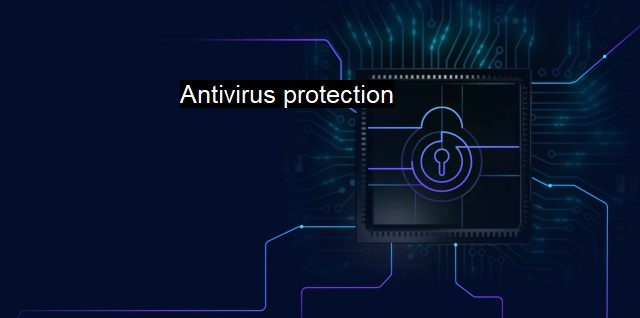What is Antivirus protection?
The Importance of Antivirus Protection in Today's Cyber-Driven World: A Comprehensive Overview of How It Works to Safeguard Your Data and Computer Systems.
Antivirus protection is a critical component in the cybersecurity ecosystem, functioning as the frontline defender against a plethora of malicious software, often referred to as malware. It aids in preserving the health and vigour of computing systems by shielding them from potential threats and harmful non-native software.At its most fundamental level, antivirus protection acts as an immune system for your computer. It identifies, neutralizes, and quarantines potential threats before they can become a serious hazard to your system's performance and integrity. Just as our immune systems work to fight off foreign bodies and bacteria, so too does antivirus protection tirelessly work to combat invasive software that seeks to exploit our systems.
Malware, like a biological virus, is designed to infiltrate and damage your system without your consent. They come in various forms such as viruses, worms, ransomware, Trojans, spyware, and adware, each with unique formats and dangerous capacities. Antivirus protection can often identify and target these threats through preventative maintenance and real-time defense mechanisms, thereby safeguarding your system from potential harm.
Antivirus protection operates through two key methods: signature-based detection and behavior-based detection. Signature-based detection relies on an existing database of known malwares, scanning for matching code within your system. If a match is discovered, the antivirus software acts accordingly by neutralising the threat. while this is highly effective against known malware, it does not account for new or modified versions. To rectify this, the more modern approach of behaviour-based detection watches for suspicious behaviour such as unauthorised attempts to access sensitive sections of the system.
Arguably, one of the most valuable aspects of antivirus protection is its ability to conduct scans on your system, both scheduled and unscheduled. These scanning protocols can delve into your system's storage and memory, seeking potential threats hidden in forgotten or unnoticed corners of your digital space. Regular proactive scanning can help safeguard and preserve your data while preventing leaks of sensitive information.
While phishing might not be a virus, it represents significant threats to the cybersecurity landscape. Sophisticated phishing scams can trick users into volunteering sensitive data, leaving them vulnerable to identity theft and hacking attempts. Modern antivirus protection also counteracts phishing attempts by warning users of suspicious communications, or even blocking them outright.
In an era where personal and corporate infrastructures are heavily digitalized, antivirus protection provides peace of mind, allowing users to freely access and leverage internet resources, safe in the knowledge that a robust line of defence guards their system. From the simple tasks of reading emails and browsing web pages, to more activity involving online transactions, carrying out any online tasks without appropriate antivirus protection might leave you exposed to cyber threats.
The continuous development and proliferation of more advanced malware push antivirus software developers and cybersecurity companies to innovate and adapt. High-quality antivirus software today not only protects against conventional viruses, but also comes packed with added features such as encrypted password storage, Virtual Private Network (VPN) access for secure browsing, dedicated protection against ransomware, and safeguarding your smart devices.
Antivirus protection is far more than a digital wall or a deterring barrier. It is undoubtedly an essential part of our digital life, scrutinizing suspicious behavior, identifying threats, then eliminating them completely to give us a safe digital environment. If cyber threats can be likened to a continuously stormy sea, then antivirus protection would be the imperative lighthouse, illuminating the obscured risks and guiding users away from the potential dangers.

Antivirus protection FAQs
What is antivirus protection?
Antivirus protection is a software designed to prevent and remove malicious software, also known as malware. It scans files and programs for viruses and other threats and then prevents them from infecting your computer.What are the benefits of antivirus protection?
Antivirus protection provides several benefits such as detecting and removing malware, preventing identity theft, protecting personal information, and safeguarding your computer from cyber-attacks.How do I choose the right antivirus protection?
When choosing antivirus protection, consider factors such as its effectiveness, ease of use, cost, compatibility with your operating system, and customer support. You may also read reviews and compare different antivirus software to determine which one best suits your needs.Do I still need antivirus protection if I use a Mac computer?
Yes, even though Mac computers are less vulnerable to malware than Windows computers, they are still susceptible to viruses and other types of malicious software. Therefore, it is essential to have antivirus protection to safeguard your computer and personal information.| | A | | | B | | | C | | | D | | | E | | | F | | | G | | | H | | | I | | | J | | | K | | | L | | | M | |
| | N | | | O | | | P | | | Q | | | R | | | S | | | T | | | U | | | V | | | W | | | X | | | Y | | | Z | |
| | 1 | | | 2 | | | 3 | | | 4 | | | 7 | | | 8 | | |||||||